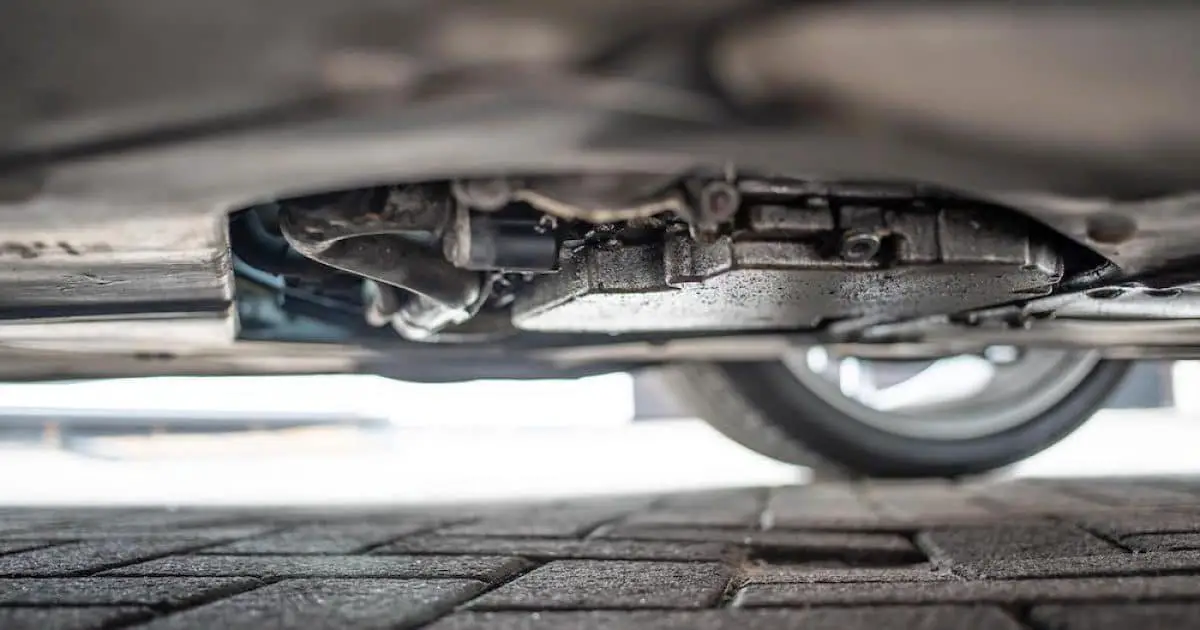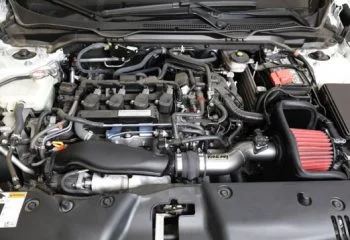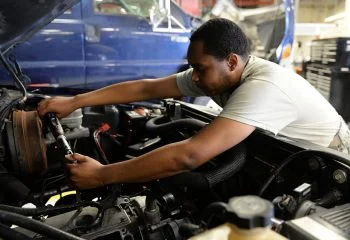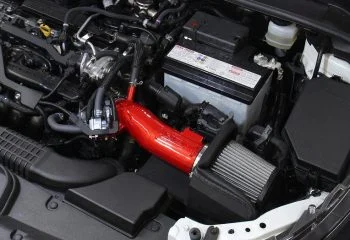An oil leak can be a costly problem for a vehicle owner. Not only does the leaked oil have to be cleaned up, but the leak itself needs to be fixed.
The cost of repairing an oil leak will vary depending on the severity and location of the leak. However, it is generally a relatively expensive repair. So, how much to fix an oil leak?
Some estimates say the engine oil leak repair cost can be anywhere from around $150 to $1200.
Here’s a breakdown of the most common types of oil leaks, and how much they typically cost to fix.
What's in this post?
What causes oil leaks?
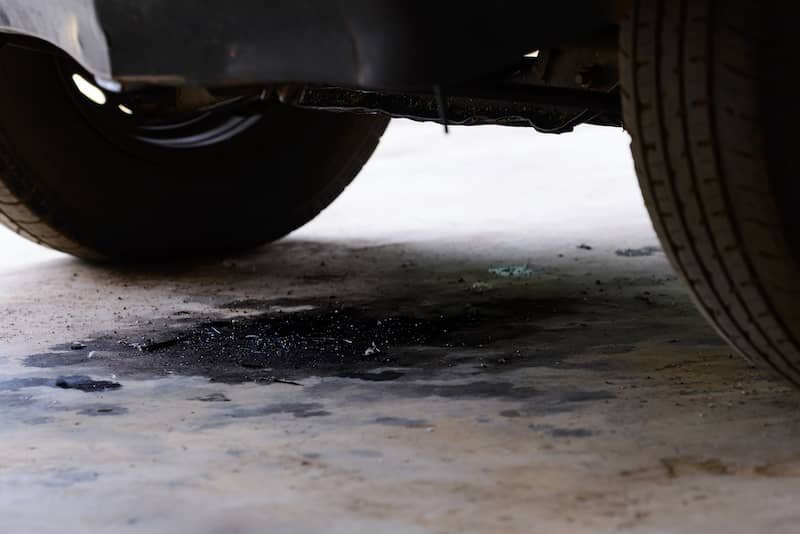
Failed Gasket
When it comes to maintaining an engine, nothing is as important as keeping the oil contained within. When a gasket fails, the oil inside your engine leaks out and can cause major damage to the internals of your car.
This would be especially true for older cars with wear-and-tear parts such as joints or filters where neglecting to replace them may lead directly to an expensive repair bill down the line.
To protect your engine from costly repairs and downtime, it is essential to stay on top of regular maintenance and perform regular inspections of key parts like gaskets and seals.
By taking a proactive approach to car care and keeping up with routine maintenance tasks, you can safeguard your vehicle against costly repairs and keep it running smoothly for years to come.
Degraded Oil Filter
As anyone who has ever worked on a car knows, the oil filter plays an essential role in protecting the motor oil from contaminants.
These include harmful particles such as dirt and dust, along with other impurities like water or microorganisms.
The main job of an oil filter is to keep these unwanted elements out of the oil, thereby helping to ensure that the engine runs smoothly and efficiently.
However, this crucial component can also be responsible for a significant number of oil leaks. If an oil filter is installed too tightly, it can damage the gasket, leading to a leak in the system.
Thus, maintaining a properly fitted oil filter is key to preventing potentially serious engine problems down the road.
Leaking ring or valve seal
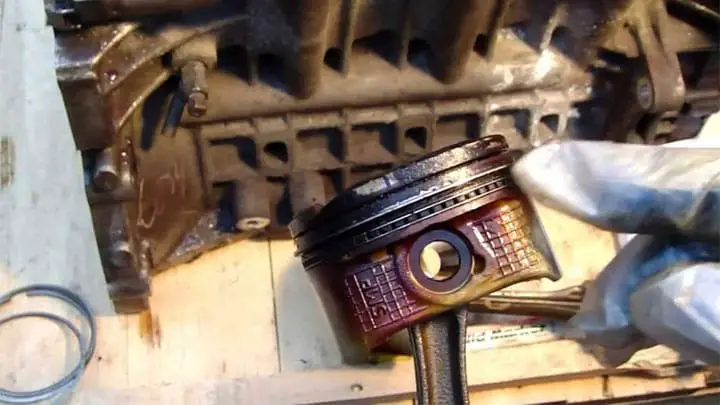
Oil leaks are a common problem in all types of engines, and they have many possible causes ranging from worn valve seals to damaged oil rings.
If you notice oil leaking from your engine, it is important to take immediate action, as this can lead to smoke coming out from your exhaust.
So if you are experiencing an oil leak, be sure to get new gaskets right away to avoid any costly issues down the road!
Too much oil
When performing an oil change on your car, it is important to be thorough and precise. One potential pitfall of this process is the possibility of accidentally pouring too much oil into your engine.
In such cases, you will need to quickly remove the excess oil in order to prevent oil leaks, which can not only lead to other issues with your car but can also cause serious damage to the paint job.
To avoid these problems, it is important to always have clean rags or paper towels on hand in case of any oil spills.
By being thorough and careful throughout the oil-changing process, you can ensure that your car stays leak-free and that its beautiful paint job remains protected.
Stripped or leaking drain plug
Most oil leaks are caused by a stripped or leaking drain plug. When changing your motor’s fluids, it is important to make sure that the threads are clean and free from any dirt before installation.
Engine components like this can be easily prevented by removing them for regular servicing after each time you change your motor’s fluids!
This will ensure that your oil filter is able to do its job properly and prevent any oil leaks.
Broken Oil Filler Cap
If you notice oil puddles forming quickly under your car or near the engine, it is likely that there is an oil leak somewhere in your vehicle.
One potential cause of this oil leak could be the filler cap attached to the valve cover.
Over time and with regular use, these caps can break easily or become loose, allowing oil to escape into places where it shouldn’t be.
Additionally, it is possible that someone changing the oil accidentally forgot to put the oil filler cap back on after performing the service.
Regardless of the cause of the oil leak, this is a problem that can usually be fixed fairly easily.
If re-adjusting the oil filler cap does not solve the issue, you can simply purchase a new one from a trusted auto parts supplier.
Bad Crankshaft Seals
At the front of the crankshaft, you will find the front crankshaft seal. This seal is responsible for preventing oil from leaking out of the motor.
If oil is seeping out towards the front of the engine, near the belt, then this most likely indicates that there is an issue with the front crankshaft seal.
Alternatively, if the oil appears between the engine and transmission, this may be due to a problem with the rear crankshaft seal.
How oil leaking can damage your car?
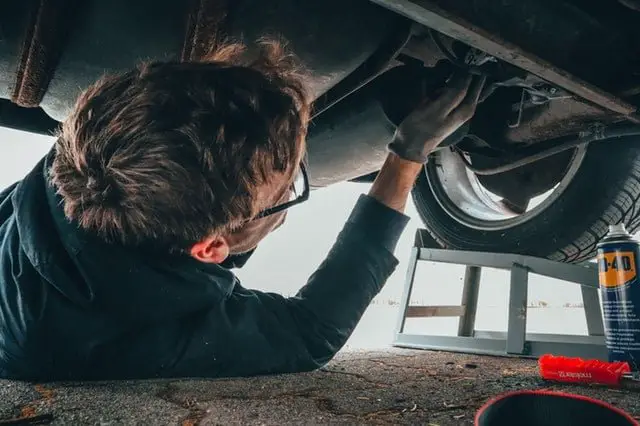
Oil leaking from your car can cause serious damage to your engine, both in the short and long term.
For example, leaked oil can cause premature wear on the seals and gaskets of your engine. This can lead to increased friction and heat within the motor, which can eventually cause damage to critical components like pistons, valves, rings, and more.
If the oil level in your car gets too low, it can cause major engine damage. Any oil that is present in the engine works to regulate and maintain the temperature of the metal parts inside.
When oil levels are insufficient, this process is disrupted, and the metal parts begin to heat up rapidly.
As a result, any cracks or other flaws in the metal will widen and expand, causing irreparable damage to the engine.
In addition, oil leaks from leaking pan gaskets or seals may go unnoticed until they are severe enough to lead to overheating.
Therefore, it is essential to regularly check your vehicle’s oil levels and perform any necessary maintenance in order to avoid costly repairs down the road.
Not only can oil leaks cause damage to your car’s engine, but they can also lead to rust and corrosion. In severe cases, oil leaks can even cause the car to catch fire.
In addition to causing mechanical issues with your engine, oil leaks can also damage your paint job by staining or corroding various parts of your car’s body. If not immediately addressed, these problems may require costly repairs down the road.
How to identify an oil leak?
Oil leaks can be difficult to identify, as they often happen slowly over time. However, there are a few telltale signs that may indicate an oil leak in your car.
- When driving, there is a strong burning smell
- Steering and transmission are difficult to control
- Hard to brake than usual
- Fluid seeps from the bottom of your car.
There are a variety of different fluids that can leak from your vehicle, and each one signals a different issue.
If you see fluid leaking from your vehicle that is black, amber, or light or dark brown, it’s important to know that this is not oil.
For example, green/blue may be engine coolant, while pink fluid could be transmission fluid or engine coolant on newer cars. Knowing what’s what can help you better understand the issue your vehicle is experiencing and get it fixed sooner.
So if you see a fluid leak, don’t just assume it’s oil. Take a closer look and determine what kind of fluid it is so you can get your car the help it needs.
How to fix an oil leak?
If you are experiencing an oil leak, there are a number of potential repair procedures that may need to be carried out in order to get your engine back up and running.
The most common oil leak repair solutions include:
- Change a gasket plug
- Replacing the bad oil filter
- Replacing a damaged oil cooler line
- Repairing or replacing a damaged pan gasket
- Replacing camshaft seal.
These procedures can vary depending on the nature and severity of the leak, so it is important to consult with a qualified technician for detailed guidance on the best approach to take.
If you have a car that’s older than your average model, it might be worth trying the oil leak additive option. These products help rubber seals stay flexible so that fluids inside vehicles stay in place.
This means that the seals will not leak fluid immediately when they are exposed to a sudden temperature change or a high-force impact (like hitting something really hard).
The good news? You don’t need much because these additives will do all their work within just one day!
However, if not enough time has passed since the initial damage occurred then try repairing first before resorting too far to alternative solutions such as purchasing new parts.
With the right tools and expertise, however, oil leaks can typically be addressed quickly and effectively, allowing you to get on with your day-to-day activities with minimal downtime.
So if you start noticing signs of an oil leak in your vehicle, don’t hesitate to seek professional help right away. Your engine will thank you!
How much to fix an oil leak?
Oil leaks can be a major problem for car owners.
Not only can they cause your engine to run less efficiently, but they can also lead to oil being deposited on the road surface, which can be dangerous for other motorists.
The cost of repairing an oil leak can vary widely from $150 to $1200, depending on the type of leak and the complexity of the repair. The majority of the repair cost comes from the labor for removing and replacing any necessary components.
The location, size, and type of oil leak will all affect the nature of the repair, but in most cases, it should be possible to fix the problem for between $5 and $30.
For example, a leak from a valve cover gasket often tends to be one of the more inexpensive oil repairs, as it typically only involves replacing the gasket and sealing it in place.
By comparison, repairing a camshaft seal can be much more complex and costly, requiring the removal of several engine components in order to access and replace the seal.
So if you are facing an oil leak repair, it is important to consider not only the costs associated with replacing any leaking components but also with dismantling and reassembling your engine in order to make these repairs.
With the right approach, you can get your car back on the road in no time without spending a fortune!
How do you prevent oil leaks?
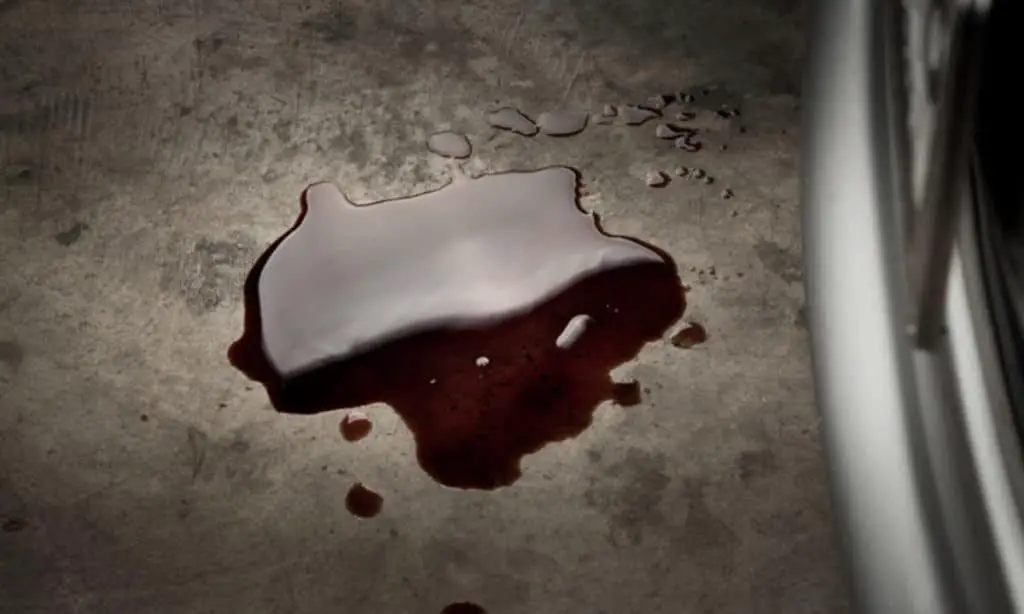
As with most car maintenance issues, the best way to deal with an oil leak is to prevent it from happening in the first place.
There are a few simple things you can do to prolong the life of your engine and minimize the risk of oil leaks:
Change your oil regularly – This is one of the most important things you can do to keep your engine in good condition. Over time, oil breaks down and becomes less effective at lubricating and protecting your engine.
As a result, old oil can lead to increased wear and tear on engine components, which can eventually lead to leaks.
Most carmakers recommend changing your oil every 5,000 miles or so, but it’s always best to check your owner’s manual for specific recommendations.
Check for signs of leaks – If you notice any signs of an oil leak, such as puddles of oil on the ground or spots on your engine components, make sure to get it inspected by a mechanic right away.
Small leaks can often be resolved quickly and easily, so it’s important not to ignore them and risk serious damage to your engine.
Use high-quality oils and fluids – Using brand-name motor oils, coolants, transmission fluid, etc. can help keep your engine well lubricated and reduce wear over time.
These high-quality products are usually more expensive than generic alternatives, but they can go a long way in protecting your engine from leaks or other issues down the road.
Keep your engine clean – A clean engine is a happy engine! Make sure to regularly clean your engine bay to prevent dirt and grime from building up and causing problems.
Periodic car maintenance – In addition to the tips listed above, it is also important to take your car in for regular check-ups with a mechanic.
This will allow them to spot any potential issues before they become major problems, which can help minimize costs and avoid costly repairs down the road.
A few simple preventive measures can go a long way in protecting your engine from oil leaks or other issues. By following these tips, you can help keep your car running smoothly for years to come.
FAQs
Can you drive long-distance with an oil leak?
When you notice an oil leak in your car, it’s important to avoid driving for long distances. The heat from the engine can cause temperatures inside and outside of a vehicle to reach up enough that if there is leaking onto a hot exhaust pipe it could potentially catch fire!
Is an oil leak serious?
One of the less obvious dangers of oil leaks is the fire hazard they present. If oil from a leak catches fire, or the engine seizes and fails while you’re driving, you or others could be injured.
At best, a seized engine results in repairable damage. In other cases, the damage is so severe that the engine must be replaced.
Oil leaks are also a safety hazard. If oil from a leak catches fire, or the engine seizes and fails while you’re driving, you or others could be injured.
Why does my car leak oil when parked?
The vast majority of oil leaks when parked are due to failing engine gaskets, bad connections or a leaking pan. It can be difficult to fix this problem on your own. You may need special tools that you don’t have.
If the problem is more complicated, I recommend taking the car to an auto shop. They will have all the supplies they need to fix it.
Can an oil leak cause loss of power?
When engine oil pressure drops, it can have a serious impact on the performance of your vehicle. The increased friction between different parts in your engine causes a steep decline in overall performance, resulting in a reduction in fuel economy, loss of power, and even engine stalling.
Is a small oil leak OK?
If you have a small oil Leak, topping the oil and watching carefully for leaks often allows you to get home safely. But you have to act fast before things turn worse.
How long does it take to fix an oil leak?
The process of changing your oil pan can be a difficult one if you don’t know what to do.
Depending on the technician, it could take between 1 and 2 hours for them just so they’ll have enough time with their tools in order to fix or replace any parts that may break during this job.
But It could easily take 6 if you’re not skilled in this area of expertise!
Can hitting a pothole cause an oil leak?
Hitting a pothole or rock can cause major damage to your oil pan, which may lead up in the future to slow leaks and even more costly repairs. The gasket/seal broken down caused this issue too!
Does insurance cover oil leaks?
No. The cost to fix a leaking heating oil tank can be daunting, and homeowners insurance won’t cover the damages. This means you’ll have to take out separate policies for home repairs or environmental clean-up if this happens!
Is it normal for oil to leak after an oil change?
When you get your oil changed, it’s normal to see a few drops of liquid coming from the bottom. But if more than that starts happening and they’re not just coming out after sitting there for a while then something else may be causing them like a leaky drain plug or a dirty gasket part where two metal surfaces come together (like between vertebrae).
How much does it cost to fix a leak in the oil pan?
The cost of replacing an oil pan gasket is between $400 and 500.
The price varies based on what you want to be done, with labor coming in at around 300-400 dollars while parts will set someone back another 100 bucks or so, that doesn’t include taxes though!
You also have the option for other repairs which could bring your total bill up even higher than expected.
Should I buy a used car that has an oil leak?
No, you shouldn’t. The condition of a used vehicle’s engine bay can often give you an idea about its overall quality.
A lot goes into maintaining this important part, which means that any leaks or other problems will be noticeable quickly and easily – don’t buy if these signs appear!
How do I fix a hole in my oil pan?
This is a great way to repair your vehicle if you are not able or unwilling to weld. Just tack-weld the metal patch in place and JB weld around its perimeter for extra security, so that no heat will be applied anywhere near any components inside of your car!
How much is a cracked oil pan?
An engine oil pan replacement can be anywhere from $100 to $400, depending on your vehicle and the type of work you want to be done.
Will tightening oil pan bolts stop leaks?
The best way to get your bolts tight enough is just to replace the gasket. You can’t really go too far with tightening them since it would result in warping or breaking an oil pan. But if you don’t have a replacement for that then be sure not to overdo things when tightening down those securing screws!
Conclusion
Oil leaks can be a costly problem to repair, and they can also cause damage to the environment. We hope this blog post has helped you understand how much to fix oil leak and how to prevent them. If you have any questions or need help fixing an oil leak, please don’t hesitate to contact us.

